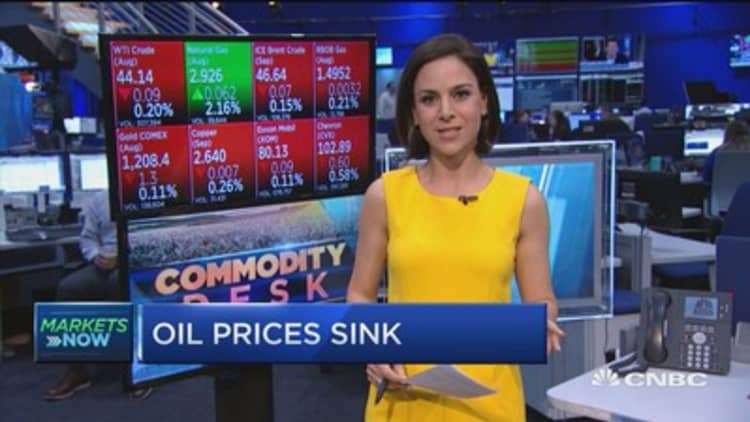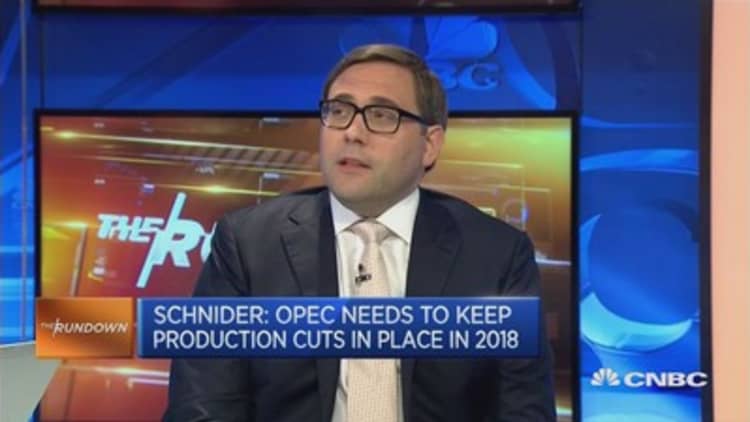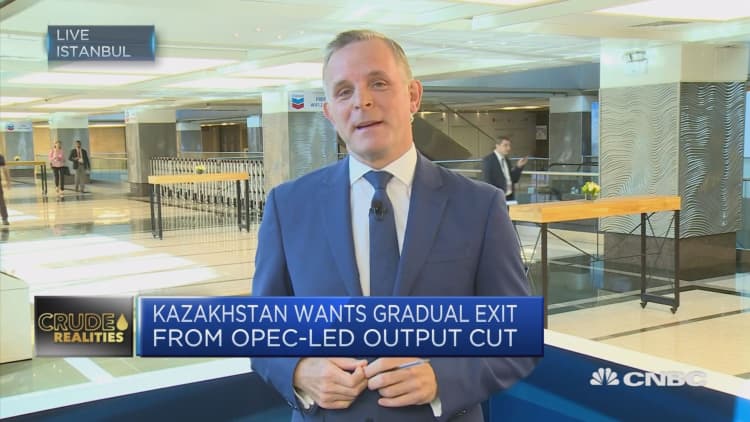
Oil prices rose modestly on Monday, but rising drilling activity in the United States and uncertainty over Libyan and Nigerian production cuts clouded the future supply outlook.
Brent crude futures, the international benchmark for oil prices, rose 22 cents to $46.93 per barrel at 2:39 p.m. ET (1839 GMT). U.S. West Texas Intermediate (WTI) crude futures ended Monday's session 17 cents higher at $44.40 per barrel.
"The market is in trouble and looks very vulnerable to lower numbers," PVM brokerage said in a note.
The Organization of the Petroleum Exporting Countries has agreed with some non-OPEC members to curtail production until March 2018, but the move has failed to eliminate a global glut of crude.
Several key OPEC ministers will meet non-OPEC Russia on July 24 in St Petersburg, Russia, to discuss the current situation in oil markets.

With lingering questions surrounding Russia's support of additional cuts, the market is "iffy on what OPEC is going to do," said James Williams, president of energy consultant WTRG Economics in London, Arkansas.
Kuwait said on Sunday that Nigeria and Libya had been invited to the meeting and their production could be capped earlier than November, when OPEC is scheduled to hold formal talks, according to Bloomberg.
However, Nigeria's oil minister was unable to attend the OPEC meeting because of a previous commitment, the Kuwait Oil Minister Essam al-Marzouq told reporters on Monday.
Libya said on Monday it was ready for talks but added that its political, economic and humanitarian situation should be taken into account in talks on caps.
Kazakhstan wants a gradual exit from an OPEC-led deal on oil production curbs and a rise in output one or two months after its expiry, Kazakh Energy Minister Kanat Bozumbayev told Russia's TASS news agency on Sunday.
Brent prices are about 17 percent below their 2017 opening despite strong compliance by OPEC with the production-cutting accord.

BNP Paribas joined the growing list of investment banks and analysts that have cut their crude oil price forecasts for the coming year.
"The simple truth is that OPEC and Russia have to contend with the fact is that there is output growth elsewhere diluting their efforts at reducing supply," the bank said in a note.
"We thus have made deep cuts to our crude oil price forecasts. We now see the price of WTI averaging $49/bbl in 2017 (-$8/bbl revision) and that of Brent $51/bbl (-$9/bbl revision)."
U.S. energy firms added seven oil drilling rigs last week, marking a 24th week of increases out of the last 25 and bringing the count to 763, the most since April 2015, energy services company Baker Hughes said.
U.S. oil production has risen more than 10 percent since mid-2016.
"This is the response of prices to news of increasing oil production in the U.S.," Commerzbank said in a note. "The U.S. Department of Energy reported a marked rise in production that virtually reversed the previous week's decline."
However, there are some indicators the oil market might have bottomed as money managers have raised their long positions since the start of July after reducing them to a nine-month low by late June.

